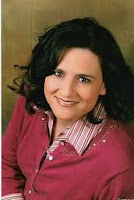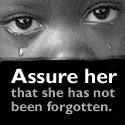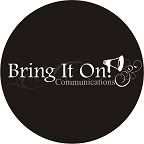Two of my topics of interest in recent years is Islam and the Middle East. Author Joel C. Rosenberg has built a successful career writing novels focusing on both of those topics. The latest is ‘The Twelfth Imam .’
.’
Here is the synopsis of this book:
Tensions Rise in the Middle East.
· Israeli Defense Minister Says Someone Must Hit Iran’s Nuclear Sites “Before It’s Too Late”
· President Warns Against Israeli Strike on Iran’s Nuclear Facilities
· U.N. Security Council Considers New Round of Iran Sanctions
· Iranian President Warns Israel “Doomed” If Zionists Attack
As the apocalyptic leaders of Iran call for the annihilation of Israel and the United States, CIA operative David Shirazi ships into Tehran with one objective: use all means necessary to disrupt Iran’s nuclear weapons program – without leaving American fingerprints and without triggering a regional war.
As David begins to infiltrate Iranian government circles, news spreads throughout the region of a mysterious cleric claiming to be the Islamic messiah known as the Mahdi or the Twelfth Imam. News of his miracles, healings, signs, and wonders spread like wildfire, as do rumors of a new and horrific war.
With the prophecy of the Twelfth Imam seemingly fulfilled, Iran’s military prepares a final strike that will bring about the End of Days. Shirazi must take action to save his country and the world, but the clock is ticking.
seemingly fulfilled, Iran’s military prepares a final strike that will bring about the End of Days. Shirazi must take action to save his country and the world, but the clock is ticking.
Here is the biography of this author:
Joel C. Rosenberg is the New York Times best-selling author of The Last Jihad
As a communications advisor, Joel has worked with a number of U.S. and Israeli leaders, including Steve Forbes, Rush Limbaugh, Natan Sharansky, and Benjamin Netanyahu. As an author, he has been interviewed on hundreds of radio and TV programs, including ABC's Nightline, CNN Headline News, FOX News Channel, The History Channel, MSNBC, The Rush Limbaugh Show, The Sean Hannity Show, and Glenn Beck. He has been profiled by the New York Times, the Washington Times, the Jerusalem Post, and World magazine. He has addressed audiences all over the world, including those in Israel, Iraq, Jordan, Egypt, Turkey, Russia, and the Philippines. He has also spoken at the White House, the Pentagon, and to members of Congress.
The son of a Jewish father and a Gentile mother, Joel is an evangelical Christian with a passion to make disciples of all nations and teach Bible prophecy. A graduate of Syracuse University with a BFA in filmmaking, he is married, has four sons, and lives near Washington, D.C.
I really appreciated the fact that Mr. Rosenberg included a ‘Cast of Characters’ at the beginning of the book. There are a lot of characters, and it is valuable to be able to have a place to look to remind you who all of them are!
One of the main characters is Najjar Malik, a physicist with the Atomic Energy Organization of Iran. He had a very interesting encounter with a stranger at the age of ten who came to his defense when two boys were beating him up:
The stranger was not a man but a boy – one not much older than he. He certainly wasn’t more than eleven or twelve years old, and he was short, with a slight build. He had jet-black hair, light olive skin, a pointed, angular, almost regal nose, and a small black spot like a mole on his left cheek. He didn’t wear street clothes like others his size and age. Rather he wore a black robe and sandals. But what struck Najjar most was the boy’s piercing black eyes, which bored deep into his soul and forced him to look away in humiliation. (p. 36)
This boy went on to tell Najjar his name, his ancestry, which languages he spoke, and many other details. Here is a portion of what he was told:
“Allah has chosen you, Najjar Hamid Malik. You will become a great scientist. You will help the Islamic world achieve ultimate power over the infidels and establish the Islamic caliphate. You will help usher in the era of the Promised One. But you must follow Allah without hesitation. You must give him your supreme allegiance. And then, if you are worthy, you shall live forever in paradise.”
Najjar hoped it was true.
“Yes, I will serve Allah with my whole heart,” he said with all the strength and sincerity he could muster. “I will devote myself to preparing for the Promised One. But who are you? Are you the One that---?”
The stranger raised his hand, and Najjar stopped talking.
“When the time is right, you will see me again.”
Najjar stared into those black eyes. And then, without warning, the stranger vanished into the crowd. (p. 38)
Another main character, David Shirazi, was personally invested in the events of September 11, 2001. He fell in love with Marseille Harper. They had been in a remote section of Canada when the events occurred. When the floatplanes that had dropped them off were finally able to pick them up – three days late – they discovered what had caused the delay:
“A group of terrorists hijacked four commercial jetliners – two from Boston’s Logan Airport, one from Newark International, and one from Washington Dulles,” MacKenzie explained.
David gasped.
“Two of the planes plowed into the World Trade Center,” MacKenzie went on. “Another flew right into the Pentagon. The fourth went down in a field in Pennsylvania. Everyone on the planes was lost. No one knew if there were more hijackers on more planes out there, so the entire air transportation system was simply shut down. Believe me, we wanted to come get you guys. But the Air Force was threatening to shoot down any unauthorized plane in the sky. The only planes in the air were F-15s and F-16s, all armed with air-to-air missiles and ready for action. I’ve never seen anything like it. But again, I apologize for what you’ve been through. If there had been any way to get you – or get word to you – please know that we would have done it.”
The group stood there in stunned silence. And then it got worse.
“Was anyone in the towers hurt?” Marseille asked.
David noticed that she was ashen, and her hands shook.
“I’m afraid the towers don’t exist anymore, young lady,” MacKenzie replied.
“What do you mean?” she asked.
“I mean the towers collapsed not long after the planes hit them.”
“Both of them?”
“I’m afraid so,” MacKenzie said.
“Was anyone hurt?”
“Are you kidding?” MacKenzie asked. “At this point, they’re saying almost three thousand people have died, but there may be more.”
“Three thousand?” David’s father asked.
McKenzie nodded. “There’s a big gap in the middle of Manhattan where the towers used to stand. There’s smoke rising as far as the eye can see. Whole thing took less than two hours, and whoosh, they were gone, both of them.”
Marseille collapsed to the ground and began to sob uncontrollably. David looked to Mr. Harper, expecting him to comfort her. But Marseille’s father just stood there, the blood draining from his face. (p. 90)
Unfortunately, Mrs. Harper worked for a bank in the South Tower. She did perish in the tragedy, and David had a purpose in life – to hunt down Osama bin Laden and bring him to justice.
Another eye-opening aspect of this book is a window into the mind of some Muslims. Here is the reaction of the Supreme Leader of Iran, Ayatollah Hamid Hosseini when a young aide disturbed him to tell him others were waiting for him:
“Everyone is waiting for you, your Excellency,” a young male aide said.
“Did I not ask to be left undisturbed?” Hosseini fumed.
The aide blanched and began to back away. “You did, but I thought…”
“You wicked son of a Jew!” Hosseini shouted. “How dare you disturb me as I enter the holy place!”
With that, Hosseini shot the man in the face.
The sound of the explosion echoed through the retreat facility. Hosseini stared at the dead man as a pool of blood formed on the hardwood floor of the hallway. Then he knelt down and dipped his hands in the blood and began to pray aloud.
“Allahu Akhbar. Highly glorified are you, O Allah. The prophet – peace be upon you – taught us that when we find those who are unfaithful and disobedient infidels, we must ‘kill them wherever you may come upon them,’ that we must ‘seize them, and confine them, and lie in wait for them at every conceivable place.’ The Prophet – peace be upon him – taught us to ‘strive hard against the unbelievers and the hypocrites, and be stern against them’ for ‘their final refuge is hell.’ May this sacrifice, therefore, be acceptable in your sight.”
With that, Hosseini rose, his hands dripping with warm blood, and turned to the chief of his security detail, who stood stone-faced and trembling in the hallway.
“I will come out soon,” Hosseini said calmly. “Make certain my way is not obstructed.”
With that, the Supreme Leader entered the bedroom alone. The security chief shut the door behind him. Hosseini then returned to his prayer rug, knelt again facing Mecca, and bowed down. (p. 179)
That passage is just about as chilling as any horror novel I have ever read…
Immediately thereafter, a voice that Hosseini identified as the Lord of the Age or the Twelfth Imam spoke to him:
“You shall finish the weapons and test them immediately. When I finish roaming the earth and all is set into place, we will proceed to annihilate the Little Satan first and all the Zionists with it. This is your good and acceptable act of worship to me. You must bring to me the blood of the Jews on the altar of Islam. You must wipe the ugly cancerous stain of Israel from the map and from the heart of the Islamic caliphate. This is right and just, but it is only the first step. Do not be distracted or confused. This is not the ultimate objective. I have chosen you above all others not simply to destroy the Little Satan, for this is too small a thing. The main objective is to destroy the Great Satan – and I mean destroy entirely. Annihilate. Extinguish. Obliterate. Vaporize. In the blink of an eye. Before they know what has hit them. The Americans are a sleeping giant. A dying empire. A sinking ship. And their time has come.” (p. 180)
Anyone who has read the Bible can see the similarity in the wording at the beginning of this paragraph is strikingly similar to 1 Peter 5:8: “Be self-controlled and alert. Your enemy the devil prowls around like a roaring lion looking for someone to devour.”
David had reservation about Islam, the religion which he loosely held to his whole life:
The problem, as David saw it, was that Islam provided no way for a Muslim to assess how he or she was doing throughout his or her life. There was no Web site to log on to and check daily scores. There were no quarterly report cards. There were no annual performance reviews. How, then, could anyone know for certain whether he would spend eternity in paradise or in punishment? How could anyone find the assurance of salvation that every thoughtful soul seeks before death?
The brutal truth was, no one could. That was what terrified Davis most. He had lied to almost everyone he had ever known. He had been unkind to people he loved. He had been ungrateful to people who had treated him well. He didn’t stay in touch with his parents. His professional life required that he be a liar and, more recently, a hypocrite – playing the part of a religious man but denying Islam’s truth and power. And then there were his secret sins, the ones he dared not confess. The more he cataloged his bad deeds, the worse he felt, and he had no idea where to turn.
No wonder devout Muslims took the verses in the Qur’an about waging jihad and killing infidels so seriously. Why shouldn’t they? To disregard the command to Jihad would be to disobey, and such disobedience could tip the scales of justice against them in the final reckoning.
Which brought him to martyrdom.
The mullahs and ayatollahs taught that the only true assurance or secure promise of eternal salvation for a Muslim was to die as a martyr, ideally as a suicide bomber, in the cause of Jihad. Osama bin Laden himself had once said, “The call to jihad in God’s name…leads to eternal life in the end and is the relief from your earthly chains.”
There was no way that was true, David was certain. But what was? (pp. 228-229)
Miraculously, Jesus revealed Himself to many characters in this book. This is happening with regularity to many Muslims in real life lately. Here is the encounter Najjar Malik had with Him:
“I am Jesus the Nazarene,” came the man’s deep voice.
Najjar felt the sound of its rattle in his chest, as though the words went through him.
“You have come?” Najjar cried. “The lieutenant to the Twelfth Imam has actually revealed himself to me?”
But at these words, the ground below Najjar shook so violently that he feared it would open and swallow him. Rocks skittered across the road from ledges above. The wind picked up strength. Najjar flattened himself to the ground, covering his head with his hands.
“I AM first and last. I am the One who lives,” Jesus said. “I am the Alpha and the Omega, who is and who was and who is to come, the Almighty. I was dead, and see, I am alive forever after, and I have the keys of hades and of death. Come and follow me.”(p. 293)
I find the subject of Islam to be very interesting. I have my own interpretations on their beliefs, and where the religion originated. It was interesting to see that Mr. Rosenberg’s characters followed the same line of thought in one section. Here is an exchange between Najjar and his wife, Sheyda (who also had a bodily encounter with the Risen Lord Jesus). Sheyda begins:
“Sometimes false prophets and ungodly rulers can do signs and wonders. Sometimes they can do tricks that look like miracles of God, but they are really tapping the power of the devil. But we should not fear because God is greater, and in due time, He will swallow the enemy and thwart the enemy’s plans.” (p. 385)
This is the first time I have read a Joel Rosenberg novel. I have a friend at church (for whom I have a lot of respect) who speaks very highly of Mr. Rosenberg’s work. I have to agree with that assessment! This book is highly intriguing, very interesting, and well researched. In addition, the writing is exemplary. I did not want to stop reading it, and stayed up a little too late a couple nights doing just that!
I think this is an incredible book! My only criticism – and it is minor- is that I was rather disappointed and taken aback by the ending; it was rather abrupt and unsatisfying. I am not sure if the finished product ends the same way (I have an Advance Reader Copy), but it certainly leads to the conclusion that there will be a second book taking up where this one left off. Despite the disappointment that it ended (!), I look forward to seeing what happens next in the Middle East that Rosenberg’s portrayed – the one in which Jesus is still moving in a mighty way!
You can order this book here .
.
The Advance Reader copy of this book was provided by Tyndale House for review purposes. The quotes and page numbers cited in this review are from the ARC; they may not match up with the final edited and printed version.



































.jpg)






